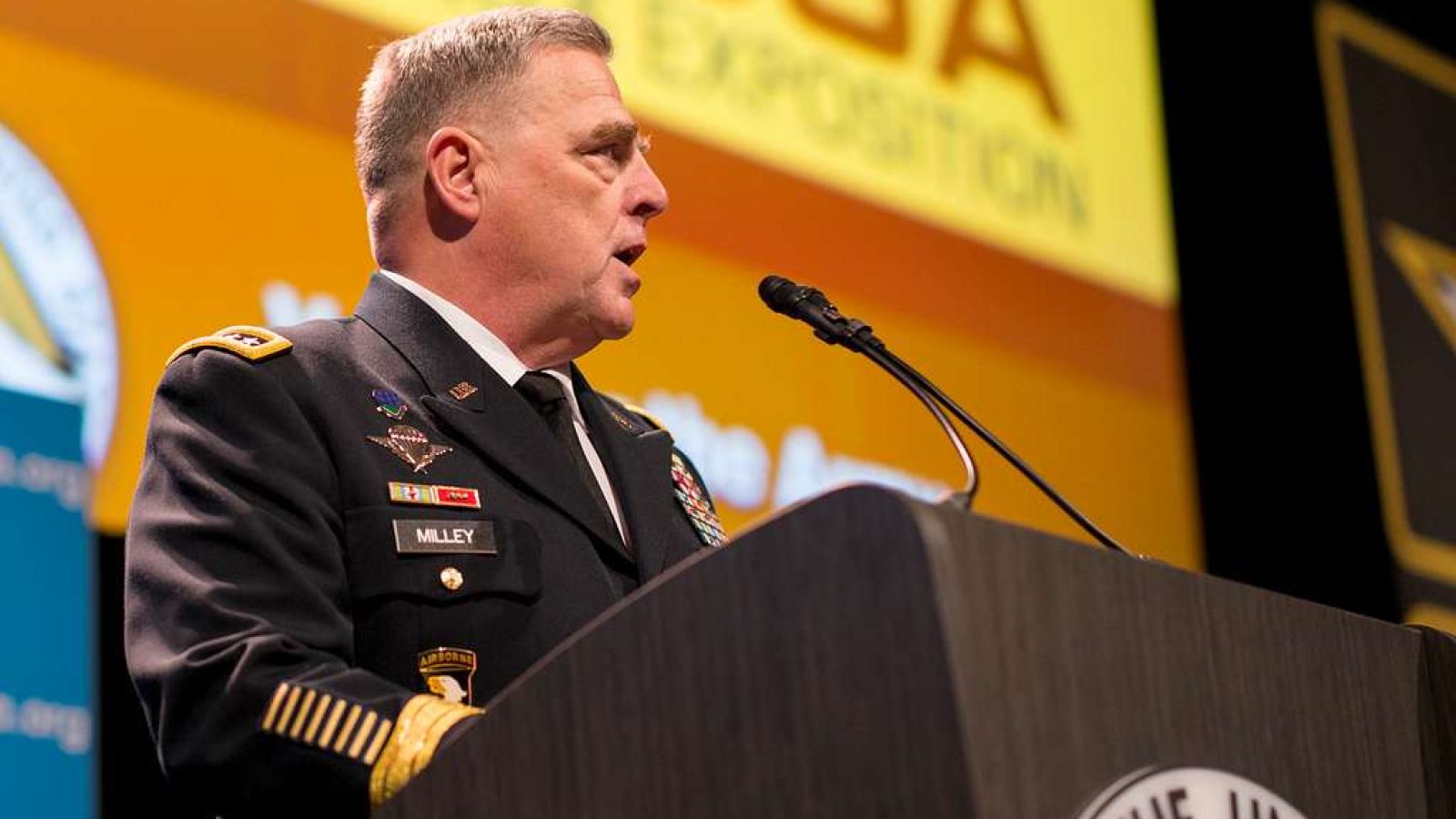Current and former high-ranking U.S. military officials have a Secret Service-style military police unit responsible for protecting them.
The U.S. Army Protective Services Battalion protects them from “assassination, kidnapping, injury or embarrassment,” according to U.S. Army records cited by The Intercept.
The U.S. Army records state:
The United States Army Protective Services Battalion and its subordinate units displayed outstanding meritorious service during the conduct of worldwide protective services’ operations for the ‘most senior leaders of the Department of Defense. The unit’s seamless security and agents’ skillful efforts in preventing assassination, kidnapping, injury or embarrassment provided an atmosphere of safety and enabled senior officials to lead the military without the distraction or concern of undue harm. The resounding success of this zero-defect mission was truly exemplary and reflects great credit upon the Soldiers of the United States Army Protective Services Battalion, the United States Army Criminal Investigation Command and the United States Army.
It appears “embarrassment” includes the monitoring of social media for ‘mean posts’ about current and former high-ranking officers.
NEW – U.S. military unit monitors social media for mean posts about current and former high-ranking officers. https://t.co/oF7TuwZMqT
— Disclose.tv (@disclosetv) June 19, 2023
Pentagon’s Secret Service Trawls Social Media for Mean Tweets About Generals https://t.co/jVZ4ersES0 by @DRBoguslaw, @samfbiddle, @kenklippenstein https://t.co/jVZ4ersES0
— The Intercept (@theintercept) June 17, 2023
The duties of the U.S. Army Protective Services Battalion include “monitoring social media for ‘negative sentiment,'” according to The Intercept.
The U.S. Army’s Secret Service is tasked with protecting top military brass from assassination, kidnapping, injury — and “embarrassment.” This includes monitoring social media for “negative sentiment,” according to a document reviewed by The Intercept. https://t.co/WCMBTSZm5J
— The Intercept (@theintercept) June 19, 2023
Perhaps the woke U.S. generals can’t handle criticism for their actions?
🚨 The Pentagon is POLICING free speech to protect generals like Mark Milley from criticism online…
It's time to DEFUND the DC Cartel's woke & weaponized surveillance tools!https://t.co/mIJjpqrPyz
— Center for Renewing America (@amrenewctr) June 19, 2023
The Intercept had the scoop:
Protective Services’s mandate has expanded to include monitoring social media for “direct, indirect, and veiled” threats and identifying “negative sentiment” regarding its wards, according to an Army procurement document dated September 1, 2022, and reviewed by The Intercept. The expansion of the Protective Services Battalion’s purview has not been previously reported.
The country’s national security machinery has become increasingly focused on social media — particularly as it relates to disinformation. Various national security agencies have spent recent years standing up offices all over the federal government to counter the purported threat.
“There may be legally valid reasons to intrude on someone’s privacy by searching for, collecting, and analyzing publicly available information, particularly when it pertains to serious crimes and terrorist threats,” Ilia Siatitsa, program director at Privacy International, told The Intercept. “However, expressing ‘positive or negative sentiment towards a senior high-risk individual’ cannot be deemed sufficient grounds for government agencies to conduct surveillance operations, even going as far as ‘pinpointing exact locations’ of individuals. The ability to express opinions, criticize, make assumptions, or form value judgments — especially regarding public officials — is a quintessential part of democratic society.”
Review the U.S. Army Protective Services Procurement Document HERE.



Join the conversation!
Please share your thoughts about this article below. We value your opinions, and would love to see you add to the discussion!